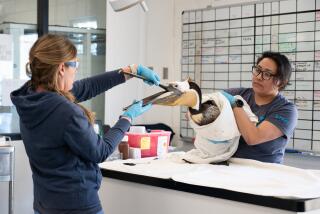Central California farmers save 65,000 rare, tricolored blackbirds
An estimated 65,000 rare, tricolored blackbirds — roughly one-fifth of the species’ entire global population — were saved this year when six Central California dairy farmers were paid to delay harvesting their silage crops through the nesting season.
With help from Audubon California and the U.S. Department of Agriculture’s Natural Resources Conservation Service, the Tulare and Kern County farmers were paid about $393 per acre for the resulting disruptions to their labor schedules and drop in the quality of grain.
The voluntary program made the farmers about two weeks later than usual in harvesting their crops. However, the birds, which tend to nest in farmlands that resemble the marshlands of their historic range, successfully fledged by the end of May.
“It’s not an ultimate solution,” said Anita Brown, spokesperson for the USDA. “But by working together, farmers are going forward so that we can eat, and birds are nesting for the survival of their species.”
Tricolored blackbirds once numbered in the millions. Today, the population, which has one of the smallest ranges of any bird in North America, has declined to about 400,000.
The species is listed as a federal bird of conservation concern and a California state species of special concern.
In 2011, similar agreements with three farmers in Riverside County and Central California resulted in the protection of 50,000 tricolored blackbirds.
The conservation organizations are working toward a long-term plan that would provide alternative nesting grounds in the farming region for the glossy black birds with dark red shoulder patches tipped with white.







